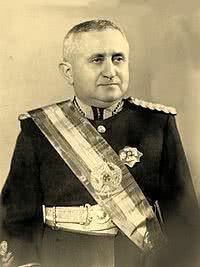Upon establishing colonial activities in Brazil from 1530 onwards, the Portuguese soon took action in favor of the development of the sugar industry. This option was primarily due to the climate and tropical soil, ideal for the extensive planting of sugarcane. Furthermore, it should be noted that the Portuguese already accumulated a great deal of experience in this type of agricultural undertaking, as it was already being experienced in the Atlantic islands of Madeira and Cape Verde.
Added to favorable natural conditions and technical knowledge, we must also emphasize that sugar production was chosen because of the high demand that the product had in the European market. In this way, we observed that the sugar industry perfectly represented the logic of colonialism, where the metropolis had the dominated lands to seek profit and exploit them, depending on the needs of the market external.
Unable to afford the high investments required for the manufacture of sugar, the Portuguese formed a solid partnership with Dutch traders. In short, merchants from the Flemish region collected sugar that arrived in the city of Lisbon and distributed the product in various regions of Europe, such as France, England and the Baltic. In other cases, the Dutch participated in sugar production by offering loans for the construction of sugar mills in Brazil.
Insofar as it offered a significant financial return, the Portuguese Crown established tax exemptions and other privileges that sought to facilitate the production of planters. In a short time, we can see that the product conquered the European market and occupied new spaces in the Brazilian colonial environment. In the 1570s, it is estimated that there were already around 60 sugar mills built throughout the territory. As early as 1627, new data indicated practically four times these installations.
Reaching the second half of the 17th century, we see that the triumph achieved by sugar was no longer the same. At that time, the Dutch were expelled from the Northeast region – the main center for the production of Brazilian sugar – to undertake the cultivation of sugar cane in the Antilles. In this context, Portugal was unable to face the most competitive price and quality of Antillean sugar. In such a way, sugar production had entered into crisis.
This would not be the first or the last time that Brazilian sugar production would come into crisis. The lack of conditions for investment and the various fluctuations experienced in the foreign market ended up triggering these times of crisis in the sugar economy. Despite this, we cannot forget that such economic activity has always been among the most important in our colonial economy. And, because of that, it never got into a definitive crisis that would close the deal.
By Rainer Sousa
Graduated in History
Brazil School Team
Do not stop now... There's more after the advertising ;)
See more!
Sugar Plants
Slaves in the Sugar Economy
Brazil Colony - history of Brazil - Brazil School
Would you like to reference this text in a school or academic work? Look:
SOUSA, Rainer Gonçalves. "Apogee and Sugar Crisis"; Brazil School. Available in: https://brasilescola.uol.com.br/historiab/apogeu-acucar.htm. Accessed on July 27, 2021.



